Apple at this year's Worldwide Developers Conference announced its intention to transition away from Intel processors to Macs powered by its own Apple Silicon chips starting in late 2020. Apple says that by using its own Arm-based processors, it will be able to build better Macs that will boast better performance while also being more energy efficient.
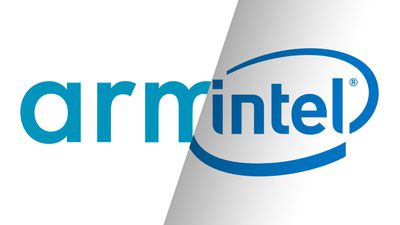
Apple's announcement at WWDC 2020 was expected, but the timing of the transition has left many people in the market for a new Mac wondering whether they should buy one now, or wait until the first Macs powered by Apple Silicon arrive. If you count yourself among those facing the same dilemma, then keep reading. This article summarizes the most salient points to consider.
Where Have I Heard of Arm Before?
Apple is no stranger to Arm-based architecture, and if you're already wedded to the Apple ecosystem, you probably own a device powered by Arm chips. iPhone, iPad, Apple Watch, and Apple TV all use Advanced RISC machine (Arm-based) processors instead of Intel chips, which use the CISC instruction set.
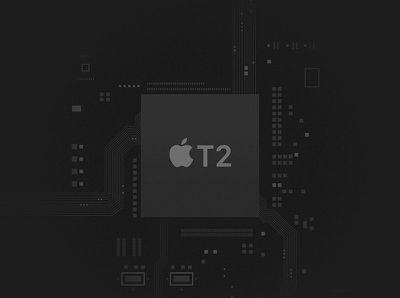
In fact, the MacBook Pro, MacBook Air, iMac Pro, Mac mini, and Mac Pro are already equipped with Apple-designed Arm processors, in the form of the T1 and T2 chips that power the Touch Bar, Secure Enclave, and other features in these machines.
Indeed, Apple's familiarity with the architecture is one of the reasons the company has decided that it's time to make the wholesale switch for its desktop and notebook machines.
Will Arm-Based Macs Be Better Than Intel Macs?
Apple says it has been working on a family of system-on-chip processors for its desktop and notebook Macs that will usher in a new set of features and deliver "incredible performance."
Apple loves superlatives, but the details are still thin, so it's hard to know exactly what performance gains are in store. But based on past and current architecture, there are some benefits we can be sure of.
![]()
Thanks to Apple's years of experience honing power-efficient chips for its Apple Watch and iOS devices, it's fair to say that we can expect a better balance of high performance and low power consumption. Apple's custom chips will also provide best-in-class security with the Secure Enclave, along with high-performance graphics capabilities for professional apps and games.
Apple Silicon chips will also include Neural Engines and Machine Learning Accelerators, making Macs ideal platforms for machine learning. Other technologies set to feature include a high-quality camera processor, performance controller, high-performance DRAM, unified memory, and cryptography acceleration.
In addition, Apple has developed several custom technologies that it can build into Apple Silicon to integrate the system and further boost the Mac's capabilities, making it stand out from the competition. Just take the T2 chip in current Macs, which integrates the system management controller, the image signal processor, the SSD controller, and a Secure Enclave with a hardware-based encryption engine, not to mention the Touch Bar and Touch ID.![]()
By going all-in with its own silicon, Apple is increasing its ability to control both the software and the hardware, just like it does for iPhones and iPads, which should make for an improved user experience overall. Not only that, apps designed for the iPhone and the iPad will run on Apple Silicon natively when the first Mac with an Apple-designed chip is released.
How Much Faster Will Apple Silicon Macs Be?
The truth is we don't know yet. Apple seems confident in the future performance of its Arm-based Macs. Presently, Apple is providing developers with a Developer Transition Kit, which is a Mac mini with an A12Z iPad Pro chip. This is based on a 2019 Arm CPU that was designed for the iPad, so shouldn't be seen as representative of what Arm Mac performance will ultimately be.
Due to the change in CPU architecture, current Intel Mac software will be translated under Rosetta -- this means that performance of unoptimized software will be slower until developers have a chance to support the new Arm processors.
Early benchmarks show how the developer kit performs with unoptimized software, and delivers benchmarks roughly on par with 2013 to 2015-era MacBook Pros.
It's worth noting, however, that the Arm-powered 2019 iPad Pro running Arm-native benchmarking software is faster than the 13-inch MacBook Pro (2019) in single core and multi-core benchmarks.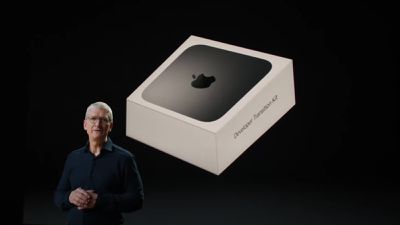
Overall, these early benchmarks seem promising, bearing in mind that Apple's Arm-based Macs that run Apple Silicon will have new chips designed for specifically for the Mac and based on the A14 chip created for the 2020 iPhone lineup with a 5-nanometer process.
When Are the First Apple Silicon Macs Due to Launch?
At WWDC in June, Apple said that the first Mac that uses Apple Silicon will be introduced before the end of 2020. The company didn't offer any more details beyond that, but rumors suggest Apple is developing at least three Mac processors all of which are based on the A14 chip in the upcoming 2020 iPhones.
Respected Apple analyst Ming-Chi Kuo believes the first Macs that will adopt Apple's custom chips will be a refreshed 13.3-inch MacBook Pro and a redesigned 24-inch iMac, with the updated machines to launch in the fourth quarter of 2020 or early in 2021.
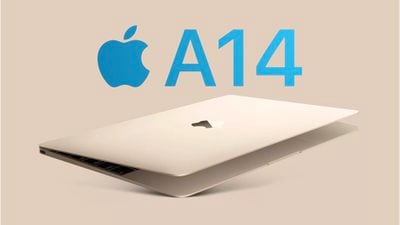
Apple analyst Ming-Chi Kuo has also said that Apple plans to release at least six Mini-LED products by the end of 2021, including 14-inch and 16-inch MacBook Pro models, so it's possible that these new Macs will be among the first to run on Apple Silicon.
Apple has already confirmed that its Apple Silicon Macs will continue to offer support for the Thunderbolt USB-C standard, so there will continue to be an Intel element in the new machines after all.
What Does Apple Silicon Mean for Intel-Based Apps?
Apple has said it will continue to support Intel Macs for years after the transition to Apple Silicon is complete, so if you buy an Intel-based Mac today, you can expect to receive software updates throughout the life of the machine.
As indicated by its Developer Transition Kit, Apple expects most developers to start building native apps immediately. However, users will still be able to run Intel apps on Arm-based Macs thanks to Rosetta 2, a translation process that runs in the background and is invisible to the user.

Apple has demoed Rosetta 2 with apps and games, and shown that there's no apparent difference between running an Intel app on an Intel machine versus an Apple Silicon machine. Everything works as you'd expect, but if performance is important to you it may take some time for all your software to be updated to support the new processors.
If you rely on Adobe software, the good news is that Apple has given Adobe early access to its Arm-based architecture, and Photoshop and Lightroom are reportedly already running smoothly on Apple Silicon.
What If I Need My Mac to Run Windows?
Unfortunately, Boot Camp won't be available on Macs that run Apple Silicon, and existing virtualization solutions also won't support running Intel Windows. Even if VMWare or Parallels were to offer that support, it would suffer from slower performance due to the different CPU architectures involved.
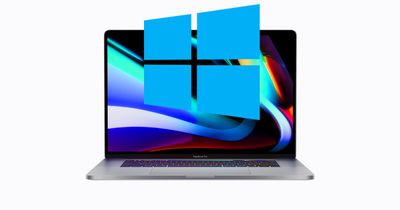
Microsoft does have its own native Arm version of Windows it uses on its Surface Pro X, but that is only available to manufacturers who resell Microsoft products under their own name and branding. As far as we know, there are no current plans make an Arm-based version of Windows available for Macs. Even if that were to become available for the Mac, it has its own compatibility and performance issues with traditional Intel Windows applications.
Should I Buy a Mac Now or Wait for Apple Silicon?
Apple is committed to supporting Intel-based Macs long into the future, and even says it has new Mac models in the pipeline that run on Intel processors.
In addition, Apple's existing Mac lineup has never looked in better shape. The 16-inch MacBook Pro and the recently updated 13-inch MacBook Pro in particular are well-rounded machines that offer very impressive performance across the board.
If running Windows is an important factor, then buying a current generation Intel Mac makes more sense than waiting. Intel Macs will be supported for years to come with new Intel Macs still in the pipeline.
In addition, if you are looking to buy a higher end Mac with specific software where performance is important to you, it also may not be worth waiting. Early Apple Silicon Macs may not replace the top-of-the-line for some time and native software will take some time to arrive.
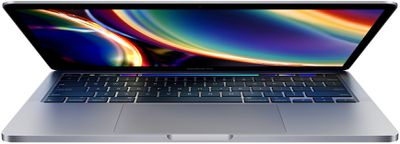
If you don't need to buy a new Mac right away, and the idea of Apple Silicon excites you, it might be worth holding out for a little longer to see how things evolve. Apple says the first Arm-based Mac is set to be introduced before the end of 2020.
That said, Apple has also stated that it will take two years to transition its entire Mac lineup to Apple Silicon, so depending on what kind of Mac you want, you could be in for a long wait.























